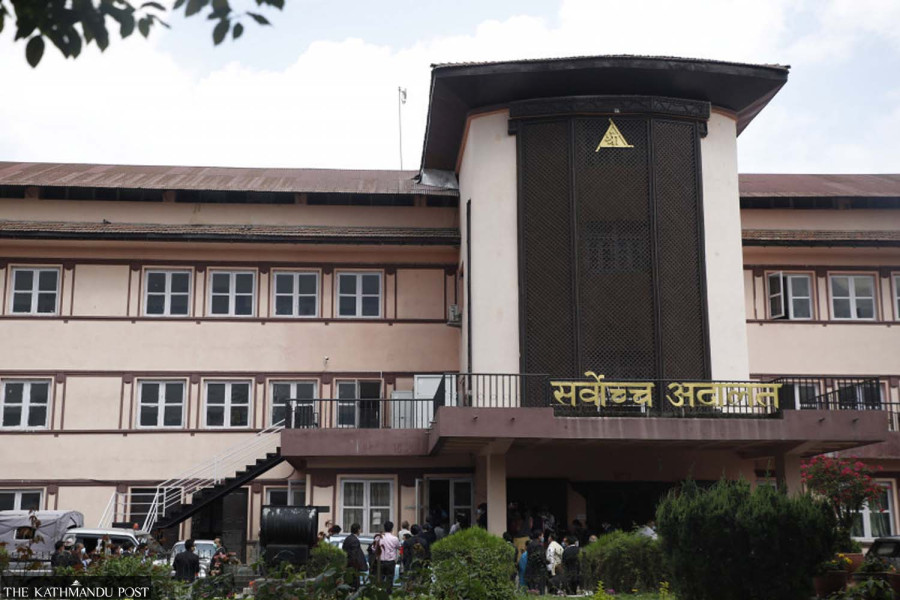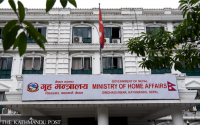National
Court seeks clarification on President’s refusal to authenticate citizenship bill
Petitioners want court to set precedent on the issue so that such problems don’t repeat.
Post Report
The Supreme Court has issued a show cause notice against the President’s Office to explain the reasons behind President Bidya Devi Bhandari sitting on the bill to amend the Citizenship Act without authentication within the constitutional deadline.
A single bench of Justice Hari Phuyal, after a preliminary hearing on Sunday, asked the President’s Office to explain why President Bhandari didn’t endorse the bill and why her office shouldn’t be directed to authenticate it. Five different writ petitions were lodged by advocates asking the Supreme Court’s intervention against Bhandari’s refusal to authenticate the bill that was twice endorsed by the federal parliament.
“Inform the court explaining the reasons, if there are any, why the bill wasn’t authenticated,” reads the court order. The petitions registered on Thursday were supposed to be heard by the court on Friday. However, that didn’t happen owing to the workload in the single bench of Justice Manoj Sharma.
The petitioners have claimed Bhandari’s decision to put the bill on hold without authenticating it was a clear breach of Article 113 (4) of the Constitution of Nepal. They have demanded that the court ask the President to correct her move and direct her to authenticate the bill.
The article says if the President sends back a bill along with her remarks and if both the Houses reconsider the bill and send it again to the President as it was presented or with amendments, the President shall authenticate the legislation within 15 days.
However, Bhandari did not authenticate the bill and let the September 20 deadline pass. As the court goes on the festive leave for two weeks starting Monday, the court’s order will be dispatched to the President’s Office only after it resumes work on October 9. Though other government offices are closed only from Saptami, the seventh day of Dashain festival, the courts, however, will shut their services from Ghatasthapana, the very first day of the festival.
“Further hearing will be held only after a month,” advocate Sunil Ranjan Singh, one of the petitioners, told the Post. “A division bench will hear the matter once the President’s Office furnishes its response.”
Singh said the division bench will decide whether or not the petition needs to be forwarded to the Constitutional Bench or a full bench.
Legal experts believe that the Supreme Court could forward the case to the Constitutional Bench as it needs to interpret the constitutional provisions related to the President’s jurisdiction in this connection. If so, the top court will constitute a Constitutional Bench headed by the chief justice.
As acting Chief Justice Deepak Kumar Karki retires on October 1, the judiciary will be led by Justice Hari Krishna Karki by the time the court resumes on October 10. He will lead the judiciary until September 9 next year.
The petitioners argue that the long festive holiday and 15-day time given for the President’s Office to furnish its response means it will take weeks before the court issues its verdict on the matter.
“We expect that the court will set a precedent on the issue so that such complications would not repeat in the future,” Singh told the Post. “The verdict on the petitions should make clear that the President cannot hold the bill endorsed from the parliament twice.”




 8.84°C Kathmandu
8.84°C Kathmandu













